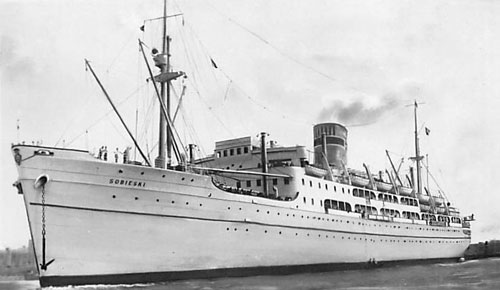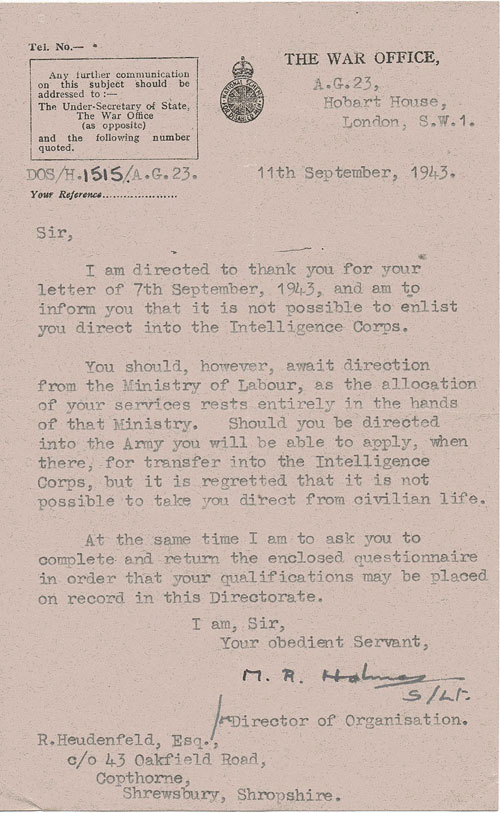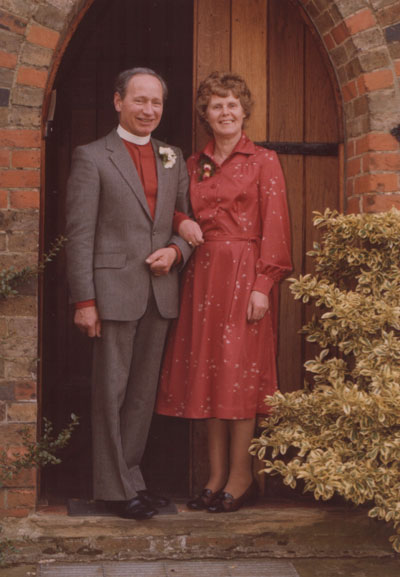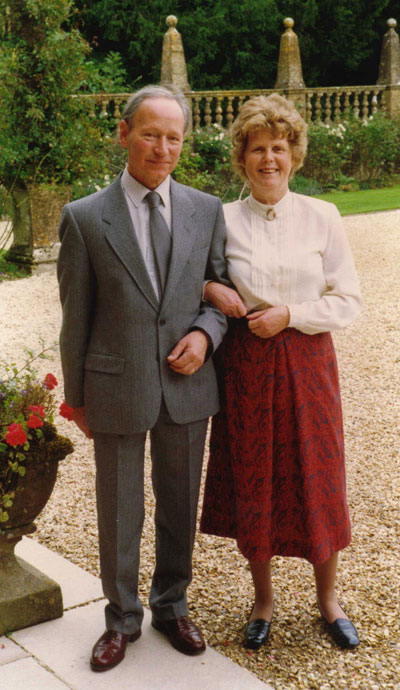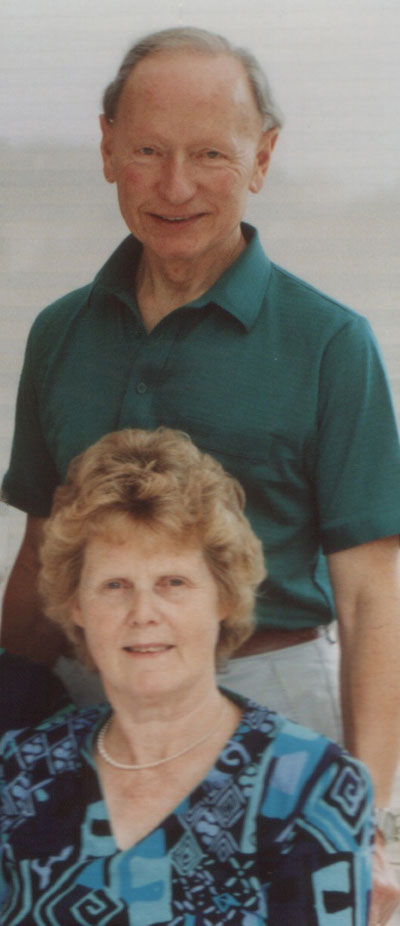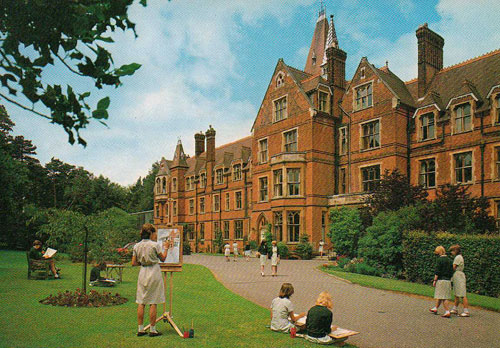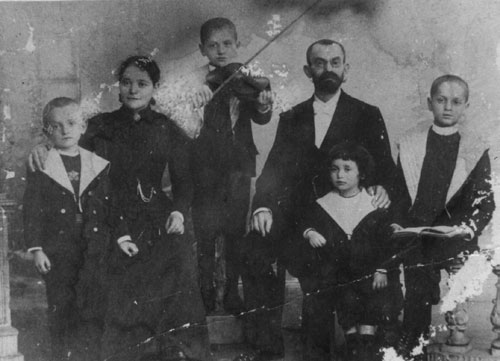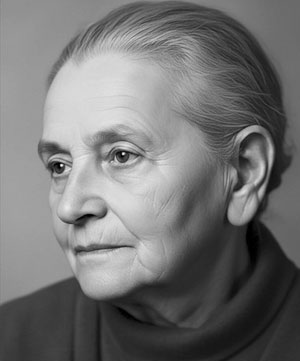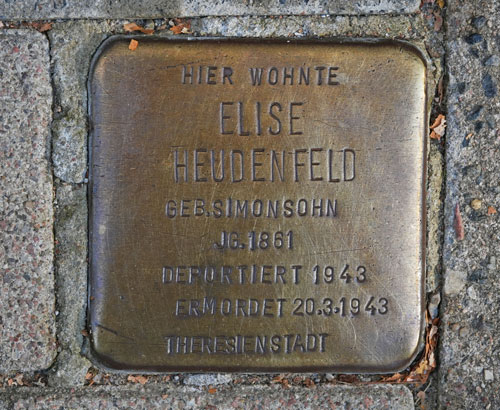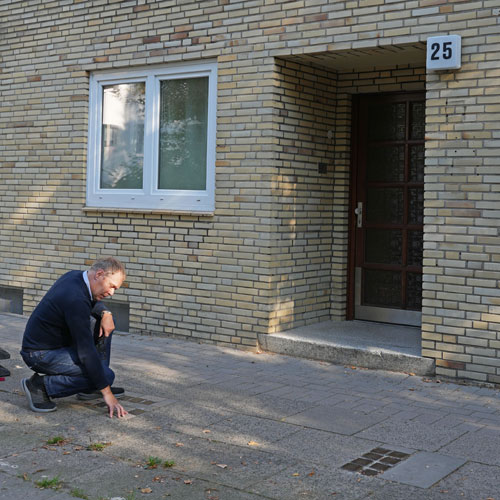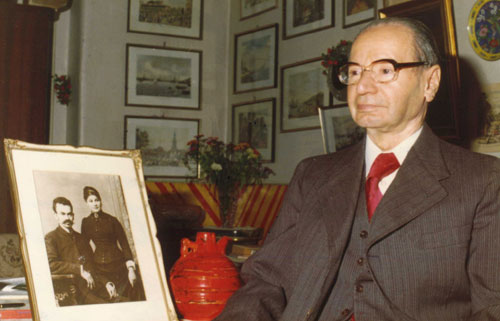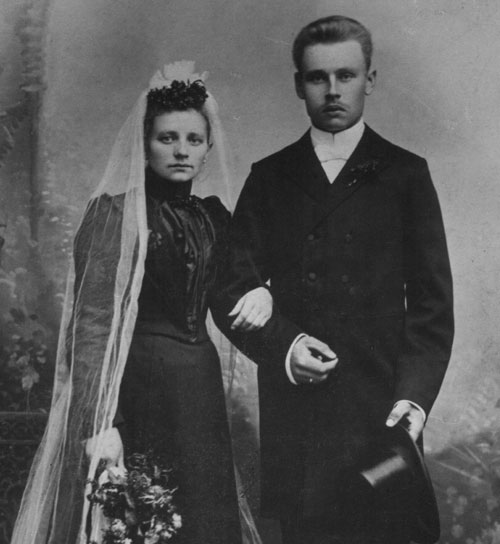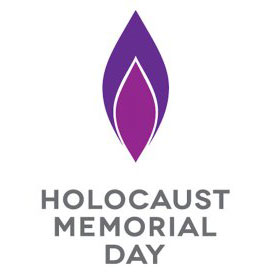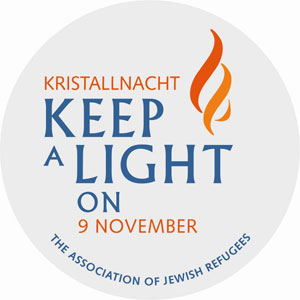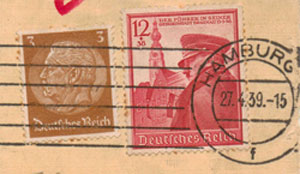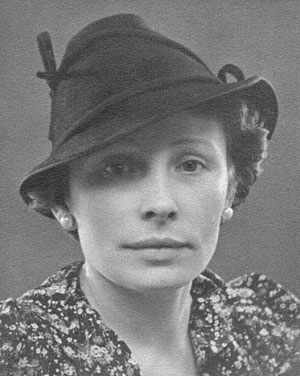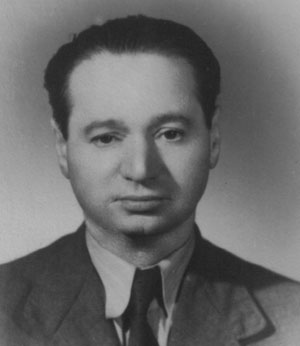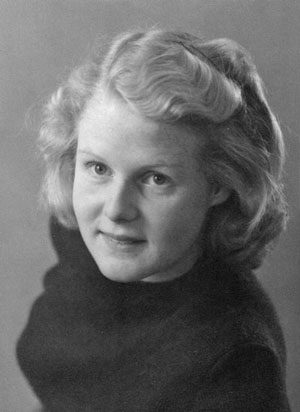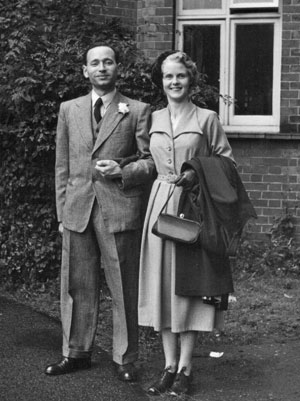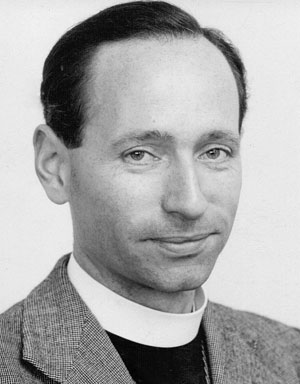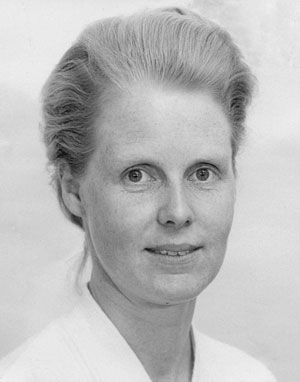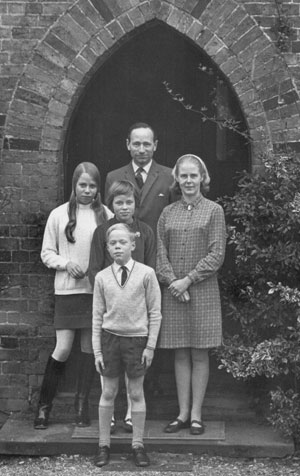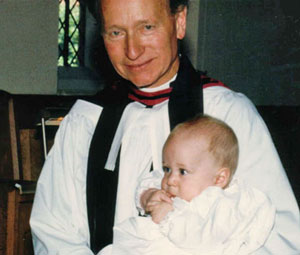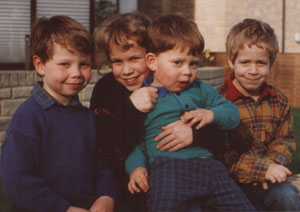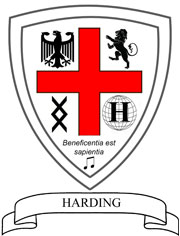
Home page > Publications > Rolf Harding and escaping the holocaust
|
Rolf John Harding (19 July 1922 - 15 February 2017) Rolf Harding and escaping the holocaustFirst published online 2010.
You can read the graphic account, by his son Phil, of Rolf Harding's early childhood, persecution, escape from Germany at age 16 in February 1939, arrest in England for internment when war broke out, expulsion on board the SS Sobieski to Canada for screening in a Prisoner of War (PoW) camp, and return to settle in wartime England. To read this unique story click the link below:
Note. A printed copy of 'Escaping the Holocaust' is held by the Wiener Holocaust Library. OTHER & FURTHER INFORMATIONFollowing the publication of "Escaping the Holocaust" further information has come to light from papers left by Rolf Harding after he passed away and from research. This is pubished here together with a series of photographs by his son, Phil Harding. Other feature items on this page:- Kindertransport List for Amsterdam, 7th February 1939 Many thanks to Dr Amy Williams for tracing in 2024 the Kindertransport record for Rolf and sending a copy to his son Phil. This is a letter with the Kindertransport list of names from "HET KINDER-COMITÉ" (The Children's Committee of the Border Guard and Aliens Service, Amsterdam), stating that they had "received information from Germany that a Kindertransport for England will take place on February 7. A list of the names of the children who will cross the border in Zevenaar and Oldenzaar" was enclosed. We now know that Rolf was listed as No. 190 on the Amsterdam Kindertransport list for 7th February 1939. Rolf's address was shown on the list as Finkenau 18, Hamburg. That was not a Heudenfeld or Brinkmann family address then (as far as his English family is aware) so it was likely to have been a neutral or non-residential address given by those helping Rolf to maintain a low profile to protect the location and privacy of family members at the time. While you are in England: You can download here a small booklet issued by The German Jewish Aid Committee in conjunction with the Jewish Board of Deputies in c.1939 and given to refugee children arriving in England. It is reasonable to assume Rolf Harding (then Heudenfeld) was issued with such a booklet - this booklet was obtained after he had passed away but the good manners and politeness it seeks to encourage was typical of Rolf Harding's approach to other people throughout his long life. The advice it gives on England and the English is an interesting piece of social history while the guidance on how Jewish refugees should conduct themselves is equally of interest. Advice and guidance includes:- Page 12: "Do not criticise any Government regulation, nor the way things are done over here. Do not speak of "how much better this or that is done in Germany". It may be true in some matters, but it weighs as nothing against the sympathy and freedom and liberty of England which are now given to you. Never forget that point." Page 12: "The Englishman... values good manners far more that he values the evidence of wealth. (You will find that he says "Thank you" for the slightest service - even for a penny bus ticket for which he has paid.)" Page 14: "Try to observe and follows the manners and customs and habits of this country, in social and business relations." Page 16: "Be loyal to England, your host." You can download the guide here:
Prisoner of War & deported with Britain's Gold Reserves(!) This contains new information found in May 2025
After war broke out in September 1939 Rolf was arrested for internment. He was taken to Huyton near Liverpool, then to a PoW camp on the Isle of Man where he was put aboard a Polish ship, the Merchant Ship (M/S) Sobieski, for Canada. According to Rolf, tensions ran high as the Jews and Nazis were held in close proximity; fights broke out between the Jewish refugees and the Nazis prisoners on the voyage. The guards separated the two groups and kept them apart with looped barbed wire. Accompanied by a French destroyer, the ship steamed to the east coast of Canada. The prisoners were taken on a train to an internment camp in a large forest clearing. It was bitterly cold; Rolf and the other refugees wore POW uniforms to keep warm. The internment camp held German prisoners taken from all over Britain. Rolf was kept at this camp for about a year. The refugee prisoners were allowed to clear trees from the surrounding area and were even trusted with axes for this purpose. Rolf made the most of this experience and benefited from mixing with some of the leading (Jewish) brains from Germany. He attended many lectures given by the inmates on subjects ranging from psychology to theology. When later in his life he was asked about the Canadian camp where he was held captive, Rolf didn't know of its precise location other than it was on the east side of Canada. However, information about the camp and the simultaneous role of MS Sobieski secretly transporting part of Britain's gold reserves during this same voyage has emerged several years since Rolf passed away in 2017. MS Sobieski was one of four ships crowded with prisoners for deporting the prisoners from England to Canada in June and July of 1940 and the last of them to set sail, leaving for Québec on 4 July 1940. One of the ships, the Arandora Star, carrying Italian internees and German prisoners guarded by 200 troops left Liverpool on 1 July 1940, bound for Canada, but was torpedoed the next day by a German U-boat submarine (U47) and sank off the coast of Ireland, with the loss of more than 800 lives, including many of the crew. MS Sobieski was the last of the four prison ships to sail from England, leaving for Québec on 4 July 1940. NOTE ON MS SOBIESKI Unknown to Rolf and the other prisoners, MS Sobieski was simultaneously also used on his deportation voyage to Canada to transport some of Britain's gold reserves for safekeeping in Canada, hidden in a separate part of the ship from where the prisoners were held. This was part of the Top Secret "Operation Fish", the relocation of British money and gold reserves from Britain to Canada for safekeeping during the Second World War. The British "treasure", once unloaded, was transported to Montréal for storage. There, it was divided into two parts: the gold was sent to the Bank of Canada in Ottawa, and the financial securities were placed in the sub-basement beneath the Sun Life Building in Montreal. As soon as they arrived in Québec City on 15 July 1940 (two days before Rolf's 18th birthday), the prisoners encountered hostility. The soldiers, with bayonets fixed and ready to charge at any moment, were expecting Nazi combatants. Instead, ordinary civilians emerged from the ship, including old men, teachers, priests, teenagers like Rolf, and tradesmen. There were some Nazis, but the captives were mainly Jewish or Italian refugees who had escaped from their countries of origin, having faced increasingly dangerous persecution. As they appeared, they were shoved and insulted and had objects thrown at them by the civilian crowd that had gathered, and their belongings were confiscated - a foretelling, perhaps, of what was to happen to Rolf's grandmother, Elise Heudenfeld at age 81, in Hamburg two years later in 1942 before she was deported and murdered at Theresienstadt concentration camp in 1943. The prisoners from the Sobieski including Rolf were put on a train and sent to Camp T in Trois-Rivières that is located between Québec and Ottawa. Camp T in Trois-Rivières, was part of the broader network of temporary internment camps used during the war. Many people, including Rolf's headmaster, made representations to the government that it was wrong to intern those who had fled Nazi persecution. A Home Office official was despatched to Canada to interview the internees. Rolf chose to return to England, a country he had long admired from the radio broadcasts he had secretly listened to when he was growing up in Hamburg. Details of Rolf's return voyage, including coming under attack from U boats, can be found in the account "Escaping the Holocaust" that is published on this web page. RELATED INFORMATION AND SOURCES A short video account of his arrival at Camp T in Trois-Rivières in 1940 by Joseph Lazar (1924-2009) who was interned at the same time as Rolf, and was of a similar age to Rolf (1922-2017), can be found online from this link. The video appears to include a photograph of Camp T. Joseph Lazar had arrived in England before the war from Austria via the Kindertransport. Prince Frederick of Prussia (1911-1966), a grandson of the German Kaiser Willhelm II (King of Prussia and Emperor of Germany, known by the British nickname 'Kaiser Bill' during WWI) and a distant cousin of King Charles III, was studying at Cambridge and living incognito as the Count von Lingen in September 1939 when World War II commenced. He too was held in Britain for several months before being deported to the internment camps near Québec City and then held in Farnham, a city in the Estrie region of Québec. He was deported in one of the four ships used to deport German prisoners, including Rolf, to Canada in July 1940. Other sources of information for this account of Rolf's deportation to Canada and his internment are: The Canadian Encyclopedia's article Prison Ships in Canada: A Little-Known Story, Wikipedia, and the Montreal Holocaust Museum. Offer to spy for Great Britain turned down Below is the letter dated 11th September 1943 from the War Office to Rolf Heudenfeld advising him that his services were not required in response to his application to join the Intelligence Corps and use his fluency in German and English along with his knowledge of Germany to support the allies in the war effort to defeat Nazi Germany.
Farewell message from Rolf Rolf died on 15th February 2017 age 94. Amongst his papers was found a personal note by Rolf concerning his childhood persecution, the murder of members of his family, and his escape from the Holocaust that said this:- I would like to leave you with a few verses from Psalm 62 verses 5-8. Yes, my soul, find rest in God, my hope comes from Him. Truly He is my rock and my salvation; He is my fortress, I shall not be shaken. My salvation and my honour depend on God; He is my mighty rock, my refuge. Trust in Him at all times, you people; pour out your hearts to him, for God is our refuge. A tribute to Rolf Harding by his son Phil for Rolf's funeral can be found on the Coopersale Vicarage page of this website. (Later) Photographs of Rolf and Elizabeth Photographs of Rolf and Elizabeth and their family can also be found on the Coopersale Vicarage page of this website.
Theological training, teaching & entering the Ministry Rolf entered theological training at Oakhill Theological College, Southgate, North London, but the college was closed due to the war. For his war effort, having had his offer to spy for Britain turned down, Rolf held a teaching post at Prestfield Prep School in Shrewsbury where he was a Form Master and taught Latin, History and PE. Rolf then left Shrewsbury and taught at St Michael's Church Missionary Society School, Lympsfield, where he met his future wife, a pupil there, Elizabeth Ashton (they married in 1951).
Rolf completed his theological training at St John's College, Highbury, in North London (since renamed the London College of Divinity) and entered full-time Ministry with the Church of England. His first posting was to establish a new church in Harold Hill, Romford, Essex. In 1952 Rolf named the newly built church St Paul's. In 1961 Rolf became the vicar of Coopersale, Epping, Essex, until he retired to Weston, Bath, in 1991, aged 69. During his time at Coopersale he was appointed hospital chaplain at St Margaret's Hospital, Epping. On retirement in 1991 he continued with hospital chaplaincy work for several years at the Royal United Hospital, Bath. Rolf's father & paternal grandparents
The parents of Rolf's father Henry Heudenfeld were Markus and Elise Heudenfeld; they lived in Hamburg. Markus was a 'handler of animal skins' and hat maker by trade, but being Jewish in 1930s Nazi Germany and trying to earn a living became increasingly difficult for Markus. The Judenvermögensabgabe ("Jewish Capital Levy") was an arbitrary special tax imposed on German Jews under the Nazi dictatorship. The tax was a punitive part of a larger series of actions taken by the Nazis to systematically steal Jewish assets. By the mid-late 1930s Elise and Markus were on hard times, largely due to the persecution of the Jewish community and the high taxes Jews were required to pay. Markus died in 1938 (or 1939?) whilst his widow Elise at age 81 was deported in 1943 to Theresienstadt concentration camp in Czechoslovakia where she died (see below).
The above picture of Elise Heudendfeld taken in 1940, 1 or 2 years after her husband Markus had passed away, is the only photographic image we have of Elise during the Holocaust period. The sadness in her face reflects her lonely predicament having recently lost her husband and the persecution facing Jews in Nazi Germany, in particular enforced poverty through the confiscation of possessions and high "Juden" taxes. Elise's two older sons Siegmund and Max were deported to Minsk in 1941 (Siegmund and his wife Margarethe were shot on arrival but Max having witnessed their murder escaped) whilst her youngest son Henry (Rolf's father) fled to Spain with his second wife Martha Isaac. Martha died in Barcelona but Henry returned to Hamburg after the war. In 1942 Elise lost her home, a three-room apartment at No. 25 Rutschbahn Strasse in the Rotherbaum district of Hamburg and her furniture confiscated when she was moved to a one-room apartment at Beneckestraße 6, a "Jews' house" (Judenhaus). It was in buildings like these that the Jewish community housed persons who had lost their homes or been forced to vacate them. At Beneckestraße 6, the community were predominantly elderly people. Elise was deported by the Gestapo on 24.2.1943 at the age of 81 from Beneckestraße 6 to Theresienstadt concentration camp (on transport VI/3 from Hamburg to Terezin) where she died a few weeks later on 20.3.1943. This was probably from a combination of starvation and cramped, unsanitary living conditions - the deliberate means to shorten the lives of the captives.
There is a memorial 'Stolpersteine' (stumbling stone - pictured above) a 10x10cm brass plaque - at 25 Rutschbahn outside the Hamburg flat, later destroyed by Allied bombing, where she had lived before being re-housed to a smaller one-room apartment (at Beneckestraße 6) and then deported. Most of her personal possessions had been confiscated by the Gestapo and their supporters before she was moved to the one-room apartment. Almost all Stolpersteine stones are laid by the German artist himself, Gunter Demnig. This link provides online information about Elise Heudenfeld's Solperstein (English translation): www.stolpersteine-hamburg.de/..>> The album of Heudenfeld/Simonsohn family photographs provided by Phil Harding in 2025 for the Institute for the History of the German Jews (IGdJ) "Visualizing the Past - Creating the Future" project can be found online from this link: bildarchiv >> Rolf's father, Henry, had a successful exporting business in Hamburg. He escaped the holocaust with his second wife Martha Isaac to Spain on their way to USA but Martha died in Barcelona and he remained there until after the war when he returned to Hamburg where he became a clerk.
Rolf's maternal grandparents Pictured below on their wedding day in 1902 are Rolf's maternal grandparents, Karl and Lina Brinkman. They were both originally from Bad Salzuflen (between Hannover and Dortmund). Karl was a carpenter and Lina a dressmaker. Influenced by Lina's business acumen, they both established a furniture retailing business. They looked after and raised their grandson Rolf when his parents divorced in 1930. During World War II at great risk to themselves they hid their son-in-law's brother Max Heudenfeld in their Hamburg flat after he had escaped from Minsk Concentration Camp.
Lina and Karl Brinkmann on their wedding day in 1902. Lina is wearing black as her mother had recently died. Footnotes. 1. A printed copy of Phil Harding's biographical account of Rolf Harding's escape from Nazi Germany is also held by the Wiener Library (Institute of Contemporary History) in London. It is one of the world's leading and most extensive archives on the Holocaust and Nazi era. Formed in 1933, the Library's unique collection of over one million items includes published and unpublished works, press cuttings, photographs and eyewitness testimony. 2. The name Heudenfeld was derived from Heidenfeld, the family name used before the Heudenfeld's moved from Krakow to Hamburg. 3. The family members killed by the Nazis were Rolf Heudenfeld/Harding's paternal grandmother Elise Heudenfeld (née Simonsohn) after her deportation from Hamburg aged 81 to Theresienstadt concentration camp, and her son Siegmund Heudenfeld and his wife Margarethe Heudenfeld (née Wolff) who were both shot on arrival at the ghetto in Minsk, Belarus. Their murder was witnessed by Siegmund's brother Max Heudenfeld who escaped but was subsequently re-captured and sent to Theresienstadt in February 1945 from where he was freed by the allies. 4. Genealogical Information: Rolf and Elizabeth Harding are descended from or related to the following ancestral names (in alphabetical order):-
5. Rolf Harding was Vicar of Coopersale, near Epping, Essex from 1961-1991 living at Coopersale Vicarage. He was also Chaplain to St Margaret's Hospital, Epping during most of that period. He and Elizabeth retired to Weston, Bath in autumn 1991. Rolf passed away at age 94 on 15th February 2017 after a long struggle with Alzheimer's; it is interesting to contemplate whether the trauma of his early life was a contributory factor in that cruel illness. |
See also: Coopersale Vicarage
#LightTheDarkness Holocaust Memorial Day Trust
Rolf & Elizabeth: 1960 passport pics
"Beneficentia est sapientia" (Kindness is wisdom) |
|
© Phil Harding Website designed and built by Phil Harding to W3C website and CSS standards. |
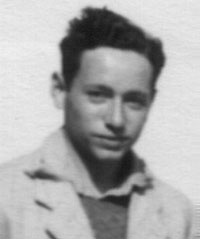 Rolf Harding, was born in Hamburg, Germany in 1922. The son of a Jewish father and non-Jewish mother, Rolf Harding (then Heudenfeld) grew up in Nazi Germany from where, in great danger that was heightened after 'Kristallnacht' (the night of broken glass, 9 November 1938), he escaped on the
Kindertransport and settled in England. Some of his family were murdered in the Nazi concentration camps whilst others managed to evade capture and survive the war.
Rolf Harding, was born in Hamburg, Germany in 1922. The son of a Jewish father and non-Jewish mother, Rolf Harding (then Heudenfeld) grew up in Nazi Germany from where, in great danger that was heightened after 'Kristallnacht' (the night of broken glass, 9 November 1938), he escaped on the
Kindertransport and settled in England. Some of his family were murdered in the Nazi concentration camps whilst others managed to evade capture and survive the war.